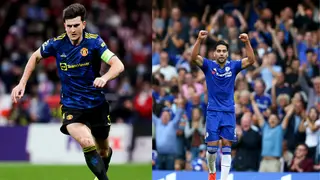Revealed! The Top 10 Worst Players in the Premier League ever.
Football
With the summer transfer window already open, several players will sign mouth-watering contracts with their clubs or move to another.
It is important to note that there is more to contract signings, as lots of factors must be settled before a football transfer is completed.
Now is the period when agents bombard club officials with text messages hoping to see their clients get better deals, and clubs try their best to poach superstars.

The world has seen some staggering football deals, such as Neymar’s €222 million move to PSG and the £100 million transfer of Jack Grealish to Manchester City.
Revealed! The Top 10 Worst Players in the Premier League ever.
Football
Here we look at the key components of football contracts.
The most notable component of a player’s contract is the wages. Players’ earnings are paid weekly, even if they feature on the bench.
The amount paid to a player is based on negotiations between his agents and the club representatives. Most clubs already have a salary cap, but agents make efforts to demand the best for the player.
The age of a player goes a long way in determining his value, as younger talents are worth more than older players.
Of course, the player’s skill is also another indicator when many competitors are looking to land their signature, SooFootball reports.
Younger players tend to sign contracts with the club for up to five years or more, which makes sense as they have many years ahead in their professional careers.
As soon as the contract is about to end, the club will try to extend the deal.
Ranking the 10 most famous footballers who party too much
Football
Once the contract expires, the player is allowed to leave the club for free.
Bonuses are an essential part of a player’s contract. It comes with the salary. But they are performance-based as the reward tends to drive players to be committed.
In fact, it does not limit to a player’s performance alone. Strikers get bonuses for goals, and now defenders and midfielders have joined the debate of whether they should receive additional rewards for their performances, Field Insider reports.
Many have tried to unravel dealings by agents. They are the middlemen who negotiate a small percentage of transfer fees and a player’s income. The more players an agent has, the more he accumulates income.
Agents do their best to seal the best deal in the transfer window – and they do this considering self-interest first.
Reports have it that some agents have even negotiated more for themselves than the player in question, a practice that leads to bad relationships.
15 of the best soccer movies of all-time you need to watch at least once in your lifetime
Football
Football contracts carry clauses too. A buy-back clause gets included in some contracts as an option to buy a player back for an agreed amount within a determined period.
Once the period passes, the buy-back clause expires. We must not confuse them with loans.
There can also be a release clause that specifies an amount at which a club is obliged to sell the player when another club bids.
The market is already inflated, competitive, and saturated. Fans will marvel at the demands negotiated among clubs, players, and agents.
Even though we can do little to change how football contracts work as football fans, at least we can find fulfilment in having a fair idea of what goes on behind the scenes.
Sports Brief earlier reported that the contents of sports contracts, like every other contract, are typically boring, lengthy, and filled with loads of legal jargon.
NFL waterboy application: How to become a waterboy in the NFL
NFL
However, every once in a while, there’s an uncharacteristic add-on to a contract.
The strangest clauses, bonuses, and stipends have revealed that the business of sports contracts can be a weird one.